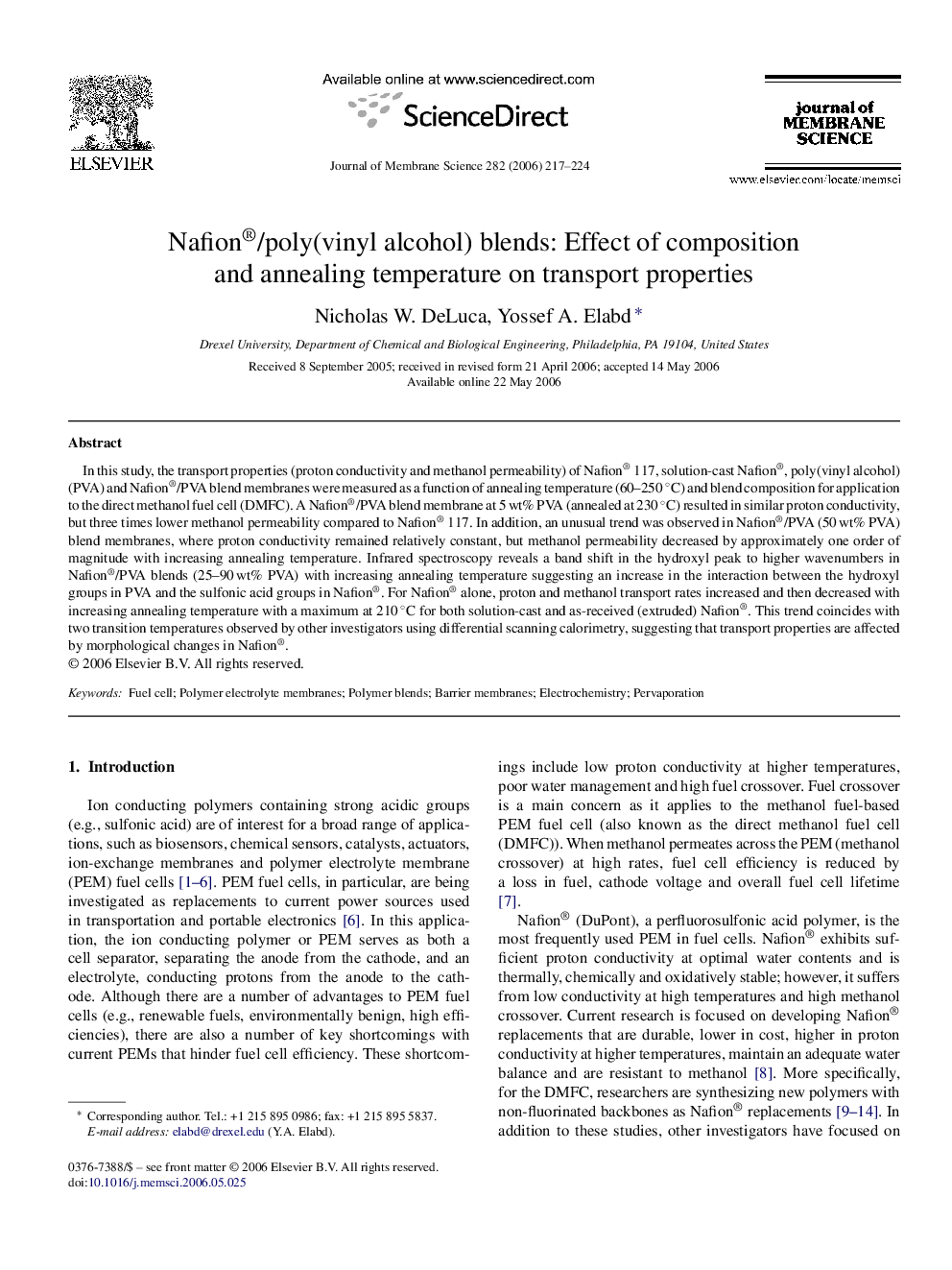| Article ID | Journal | Published Year | Pages | File Type |
|---|---|---|---|---|
| 639163 | Journal of Membrane Science | 2006 | 8 Pages |
In this study, the transport properties (proton conductivity and methanol permeability) of Nafion® 117, solution-cast Nafion®, poly(vinyl alcohol) (PVA) and Nafion®/PVA blend membranes were measured as a function of annealing temperature (60–250 °C) and blend composition for application to the direct methanol fuel cell (DMFC). A Nafion®/PVA blend membrane at 5 wt% PVA (annealed at 230 °C) resulted in similar proton conductivity, but three times lower methanol permeability compared to Nafion® 117. In addition, an unusual trend was observed in Nafion®/PVA (50 wt% PVA) blend membranes, where proton conductivity remained relatively constant, but methanol permeability decreased by approximately one order of magnitude with increasing annealing temperature. Infrared spectroscopy reveals a band shift in the hydroxyl peak to higher wavenumbers in Nafion®/PVA blends (25–90 wt% PVA) with increasing annealing temperature suggesting an increase in the interaction between the hydroxyl groups in PVA and the sulfonic acid groups in Nafion®. For Nafion® alone, proton and methanol transport rates increased and then decreased with increasing annealing temperature with a maximum at 210 °C for both solution-cast and as-received (extruded) Nafion®. This trend coincides with two transition temperatures observed by other investigators using differential scanning calorimetry, suggesting that transport properties are affected by morphological changes in Nafion®.
